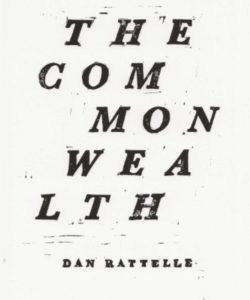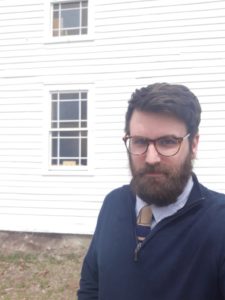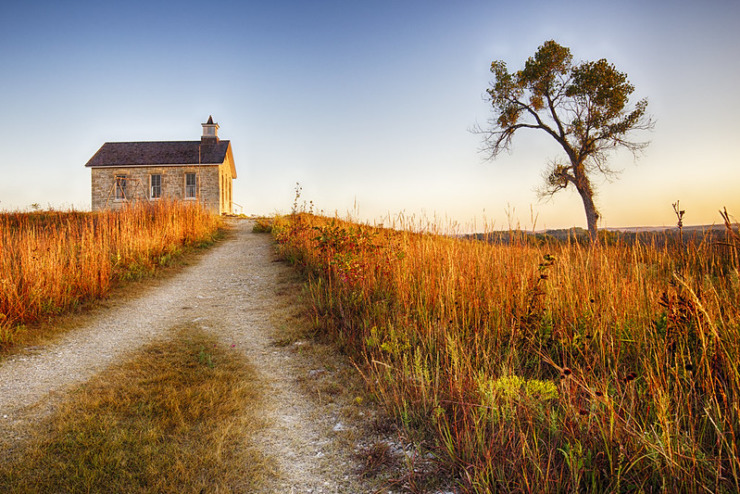Dan Rattelle and the Sense of Place
Poet Dan Rattelle reminds us that there is more to the idea of “place” than geographic location. In The Commonwealth, a chapbook of 20 engaging and easily accessible poems, Rattelle accepts and explores a broad definition of place—a living, breathing idea that embraces community, memory, people, family, friends, and the natural environment. In this broader sense, place becomes self-definition and self-identity.
I read these poems and was prompted to do a count. Over the course of a lifetime, I’ve lived in 15 dwellings in six communities, which, compared to some, is only a faint echo of the famous rootlessness of post-World War II America. Yet if you asked me where my home was, my first thought is always New Orleans, where I spent almost all my growing-up years and where I often joined my mother’s large and extensive family rambling over the landscape. Yet I haven’t physically lived there in almost half a century.
Those are the kind of thoughts Rattelle prompts in his poems. He writes about a Puritan churchyard, a baker, a potter, a footbridge, an axe, bars in Glasgow and Stirling (both in Scotland), a memory of hauling lumber, and even a visit to a cemetery.
Postcard: Glasgow Necropolis

A picnic lunch,
The two of us walk the Necropolis
In search of famous dead. You had a hunch
We’d come up empty. Bruce and Burns and Hume,
Of course, were elsewhere, from another age.
Here’s where the 19th century is laid.
Those dark industrial lords have founded tomb
By tomb their city of the dead. Their wage,
Bequeathed to us a romance, fully paid.
I connected with the entire chapbook through this poem. I have a grandmother, aunts and uncles buried in such a Necropolis, one of the famous “cities of the dead” in New Orleans. Burying the dead in above-ground tombs was almost a necessity is a city mostly below sea level where the water table is so high. My parents are buried (placed?) in a mausoleum in a New Orleans suburb, again considerably above ground level. My family is a 20th century version, albeit less famous, of that 19th century Rattelle found in Glasgow.

Dan Rattelle
The title poem, “The Commonwealth,” is a spare eight lines long—short, plain lines telling a powerful story. It is a tale of an abandoned house, burned to find the nails that held it together. What’s left is the foundation stone, storing up heat for when the seasons turn cold. It’s a simple poem suggestive of a morality play.
Rattelle’s poems and reviews have been published in Modern Age, FORMA, Alabama Literary Review, the Russell Kirk Center, and First Things. He also writes for The Imaginative Conservative, the North American Anglican, and Front Porch Republic. He is an MFA student at St. Andrews University and lives in Massachusetts.
The only complaint I have about The Commonwealth is its brevity. Yet that, too, is a virtue. Twenty relatively short poems are sufficient to explain why a sense of place is so important.
Photo by Patrick Emerson, Creative Commons, via Flickr. Post by Glynn Young.
How to Read a Poem uses images like the mouse, the hive, the switch (from the Billy Collins poem)—to guide readers into new ways of understanding poems. Anthology included.
“I require all our incoming poetry students—in the MFA I direct—to buy and read this book.”
—Jeanetta Calhoun Mish
- Poets and Poems: Sandra Marchetti and “Diorama” - April 24, 2025
- Poets and Poems: Christina Cook and “Roaming the Labyrinth” - April 22, 2025
- Longfellow’s “Paul Revere’s Ride”: Creating a National Legend - April 17, 2025


Leave a Reply